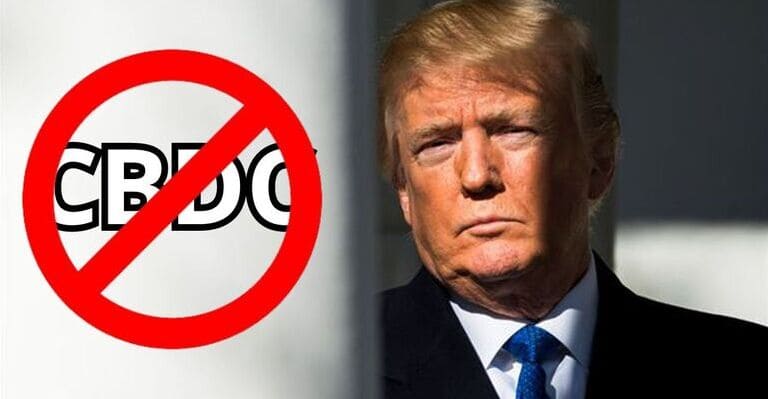Donald Trump, former President of the United States, reiterated his strong opposition to central bank digital currencies (CBDC), warning about the risk they pose to financial privacy. During a campaign event in Rochester, Hampshire, on January 21, Trump stated that he would block the implementation of CBDCs if elected in the November presidential elections.
In his remarks, Trump expressed his commitment to the Second Amendment as part of his resistance to CBDCs. Arguing that they could enable the theft of citizens’ money. He asserted that, as president, he would never allow the creation of a central bank-backed digital currency, as he believes it would give the government absolute control over people’s money, constituting a dangerous threat to freedom.
JUST IN: 🇺🇸 Donald Trump says he'll "never allow the creation of a central bank digital currency where they can rob your money." pic.twitter.com/D7nn3YLO1j
— Bitcoin Magazine (@BitcoinMagazine) January 22, 2024
This is not the first time Trump has voiced his disagreement with CBDCs. Previously, he had emphasized his intention to ban the implementation of this digital currency in the United States. His stance garnered support from several Republican lawmakers. Led by Tom Emmer, who shares concerns about government surveillance that could accompany CBDCs.

The United States Puts Brakes on the Advancement of a Regulated Digital Currency: “A threat to the American Way of Life”
In line with Trump’s opposition to regulations, the U.S. House Financial Services Committee passed the CBDC Anti-Surveillance State Act. As part of an effort to counter the proposal of this digital currency. According to Emmer. This legislation aims to prevent the creation of a financial surveillance tool that could erode the foundations of the “American way of life.”
Despite his skepticism toward centrally backed digital currencies, Trump had previously expressed disapproval of Bitcoin and other cryptocurrencies. He highlighted the unregulated and volatile nature of these currencies as factors that make them susceptible to illegal activities.
Interestingly, despite his reservations about cryptocurrencies, Trump owns a non-fungible token (NFT) project called Trump Digital Collectible Cards. This project features digital cards with images of the former president. Establishing a direct connection between the politician and blockchain technology.

